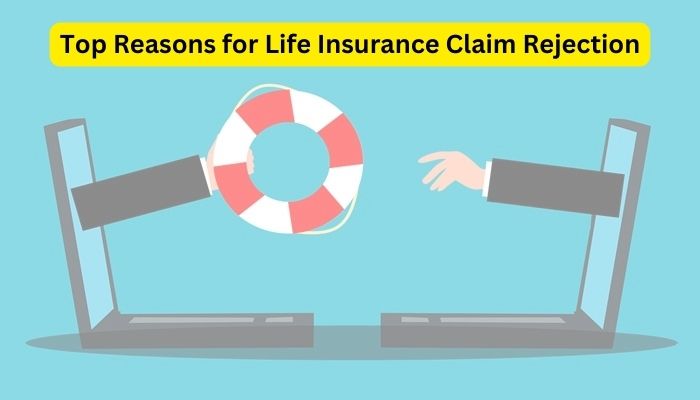Top Reasons for Life Insurance Claim Rejection – A life insurance company can refuse to pay a claim for a number of reasons. What are the reasons life insurance claims are denied?
Top Reasons for Life Insurance Claim Rejection:
Responsible people opt for a good life insurance policy and lead a peaceful life, assured of a financial cover for their family if anything happens to them. But sometimes the best of the efforts come to a nought. It is not uncommon for insurance companies to reject a false life insurance claim.
8 Life Insurance Claim Rejection Reasons:
Chronic illness:
If you suffer from a chronic illness and apply for life insurance coverage, there is a high probability of your application being denied. Chronic illnesses include:
- Cancer
- Diabetes
- HIV/AIDS
- Heart disease
- Parkinson’s disease
- Asthma
- Alzheimer’s disease
If you can provide a statement or medical records from your doctor attesting to the treatment and stability of your illness, some companies will be more comfortable insuring you.
False Information:
The insurance industry works on trust and proper disclosures. Concealing information even though it may seem trivial can lead to rejection of a claim. People often hide their smoking and drinking habits while filling the application, for example, of a term insurance plan. It may reduce the insurance premium but when your family needs the insurance the most, the claim is denied. Even leaving out details like age, height and weight could create issues later. When insurance is bought through intermediaries, agents or bank executives fill the application and may unintentionally enter wrong details without cross-checking. Some people even quote an inflated income to get a higher sum assured benefits. It is very important, to be honest, and alert while filing the application form to save your family from unnecessary hardships.
Age:
Yes, there is age discrimination when applying for life insurance. Older adults will find it more difficult to find life insurance products they want at affordable premiums. Statistically, the older you get, the more health problems you’ll develop. This makes you an increased risk for the insurance company, which is something they avoid.
As it is with most types of insurance like health insurance and disability insurance, it’s best to apply when you’re younger and healthier.
Nonpayment of premiums:
When you buy a life insurance policy, the insurance company’s obligation to pay out is contingent on the policyholder having paid the premiums (see our previous blog post). If you forget to pay, the insurance company will typically provide a “grace period” for making late payments of around one month from the due date. If you do not pay within the grace period, the policy will “lapse,” and you will no longer be covered. Even if you’ve been paying diligently for decades, your policy can be terminated after missing one premium payment.
However, sometimes policy lapse and termination happens through no fault of the insured. For example, if ERISA controls, there are many safeguards in place for an insured who does not receive the required notices and application for conversion – beneficiaries can get paid even if the policy lapsed in these circumstances!
Nominee Details:
The nominee named by the policyholder receives all the benefits of the insurance cover. An insurance company can reject a claim if nominee details have not been filled or have not been updated. People generally buy life insurance when they are young and name their parents as nominees. As they grow old, they fail to update nominee details and if parents are not present when the claim arises, it gets rejected. To avoid rejection, keep nominee details up to date and keep an eye on correspondence from the insurer.
Alcoholism:
Another facet of the medical exam is having a blood sample drawn. From your sample, insurers can determine if your alcohol consumption level is much higher than “normal” levels. If they are, the odds are much greater you’ll be denied coverage.
Type of Death:
Just like the contestability clause, insurance companies have a standard exclusion list of deaths to reduce losses. Not all types of deaths are covered by life insurance. Life insurance claims get rejected if the policyholder had been a part of hazardous activities or if he/she dies of a pre-existing disease. Insurers very minutely check the cause of death. Deaths due to natural calamities, terrorist attacks or homicides are generally not covered by insurance policies.
Delay:
Insurance companies give an ample amount of time to file a claim. Claims getting rejected due to delayed filing are rare these days, but it can happen if the delay is too long. The Insurance Regulatory and Development Authority of India has directed insurance companies not to reject claims citing delays. However, family members of policyholders should promptly file the claim. Insurers may not out rightly reject delayed claim but they may dilly-dally in paying.
Conclusion:
Confronting life insurance claim rejections can be burdensome. To avoid the same, you should be prudent while filing claims, disclose accurate information, pay the necessary premium on time, understand the exclusions, and review your policy thoroughly.

